Introduction
In an era where power outages can disrupt our digitally connected lives, having a reliable backup power source is crucial. Natural gas generators have emerged as a dependable solution, providing an uninterrupted power supply for homes. This article delves into the workings of natural gas generators, their types, benefits, and how to choose the right one for your home. We'll explore their reliability, environmental impact, cost-effectiveness, and factors to consider when purchasing, such as size, power output, installation, maintenance, and brand choice.
Understanding Natural Gas Generators
A natural gas generator uses natural gas to generate electricity. This includes propane, often used for barbecues, motor vehicles, and water heaters, and methane, which utilizes supply from underground lines. Natural gas generators work similarly to gas generators, with an internal combustion engine injecting a mixture of fuel and air into a combustion chamber. The compression of fuel and air, combined with a spark plug, ignites the fuel, driving a crankshaft and producing an electrical current.
How Natural Gas Generators Work
Natural gas generators work by harnessing mechanical energy, fueled by natural gas, to create electricity. These generators use fuels such as propane or natural gas, drawn either from a direct line piped in by utility suppliers or via a tank, to generate the cleanest fossil fuel electricity possible. They provide energy for other appliances through a series of steps, ensuring a reliable power supply for your home.
Types of Natural Gas Generators
Natural gas generators come in two main types: Standby and Prime. Standby generators, common in residential, commercial, and industrial applications, are permanently installed and automatically operate during power outages. They're supplied with fuel from the local utility company and are designed to run for limited time during emergencies. Prime power generators, on the other hand, are used when there's no local utility. They can handle larger loads and have longer running times than backup generators. They're less common for residential purposes as they require a natural gas line or delivery by truck.
Benefits of Natural Gas Generators for Home
Natural gas backup generators are an efficient and reliable power solution for your home. They offer peace of mind, convenience, and potential savings during a power outage. Once installed, these generators detect power disruptions and automatically start running, supplying power to your home within seconds. When the main power supply is restored, the generator automatically switches off and returns to standby mode, ready for the next power interruption.
Reliability and Uninterrupted Power Supply
Natural gas generators serve as a reliable source of backup power for homes. They are connected to a natural gas pipeline, eliminating the need for fuel storage unlike diesel generators. However, in situations such as a natural disaster where the natural gas utility needs to be turned off for safety, this could render the generator inoperable. Natural gas generators also tend to underperform in extremely cold temperatures and at high altitudes. Despite these potential downsides, they remain a viable choice for uninterrupted power supply.
Environmental Impact and Efficiency
Natural gas generators are recognized for their environmental efficiency. They emit lower levels of greenhouse gases and pollutants compared to diesel fuel, which is why the EPA has relatively relaxed guidelines for them. This makes natural gas generators a preferred choice for environmentally conscious homeowners. Moreover, natural gas has a smaller carbon footprint than diesel, contributing less to environmental degradation. Therefore, for those seeking an affordable backup energy system with minimal environmental impact, natural gas generators are an excellent choice.
Cost-effectiveness
Natural gas generators are gaining popularity due to their cost-effectiveness. While the initial installation costs might be slightly higher than diesel generators, the long-term fuel costs are significantly lower. Natural gas is a cheaper fuel type than diesel, which offsets the initial installation expenses. This makes natural gas generators a financially viable option for homeowners seeking a reliable and affordable backup power solution.
Choosing the Right Natural Gas Generator for Your Home
Choosing the right natural gas generator for your home involves considering the size and power output. You need to determine the appliances you wish to power and add up their wattage. Don't opt for a generator that produces more power than you need. Also, consider the frequency of your power outages. If you experience frequent and prolonged outages, a home standby generator may be the best choice. These generators can power your entire household and connect directly to your home’s circuit breaker panel. However, they require professional installation and can be more expensive.
Size and Power Output
When choosing a natural gas generator for your home, it's crucial to consider the size and power output. Generators range from 800 watts to over 500,000 watts, catering to different needs. To determine the right size, calculate the total wattage of the appliances you want to power. For appliances with a motor, use the formula: Running wattage (R) + Starting wattage (R x 3) = Total wattage needed. Add up the wattage needs of all items to figure out the size of the generator you need. Remember, the more appliances you want to use, the bigger generator you will need.
Installation and Maintenance Considerations
Natural gas generators require regular maintenance to ensure their longevity and smooth operation. A systematic checklist should be followed, which includes weekly, monthly, bi-annual, and annual inspections. Key components such as the fuel system, coolant system, lubrication system, air system, starting system, alternator, and transfer switch should all be inspected and serviced if necessary. Proper maintenance not only prolongs the life of your generator but also ensures your peace of mind.
Brand and Warranty
When considering brands and warranty for natural gas generators, it's important to choose a reputable brand that offers robust customer support. Look for generators that come with Wi-Fi-enabled features, allowing you to monitor their status remotely. Also, consider the warranty period. A longer warranty period indicates the manufacturer's confidence in the product's durability and reliability. However, warranty periods can vary significantly between brands.
Conclusion
Natural gas generators have proven to be a reliable, environmentally friendly, and cost-effective solution for home backup power needs. They offer an efficient way to ensure an uninterrupted power supply, even during unexpected outages. While the initial installation cost may be higher, the long-term savings and peace of mind they provide make them a worthwhile investment. Choosing the right generator involves careful consideration of your power needs, the generator's size and output, and the brand's reputation and warranty. Regular maintenance is also crucial to ensure its longevity. With the right choice, a natural gas generator can serve as a dependable power source, keeping your home running smoothly no matter what.







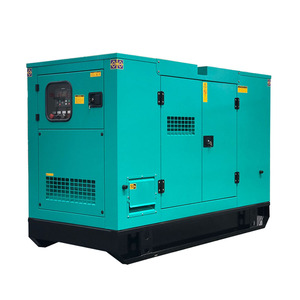

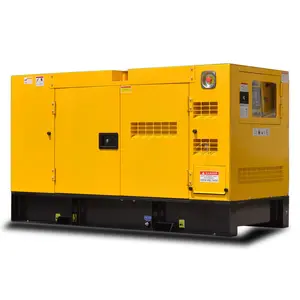

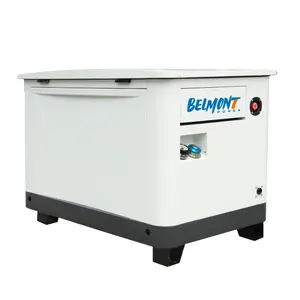


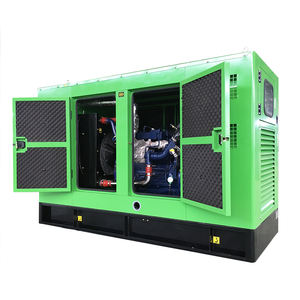


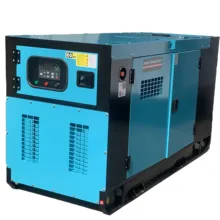



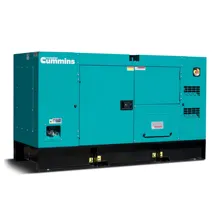






















 浙公网安备 33010002000092号
浙公网安备 33010002000092号 浙B2-20120091-4
浙B2-20120091-4